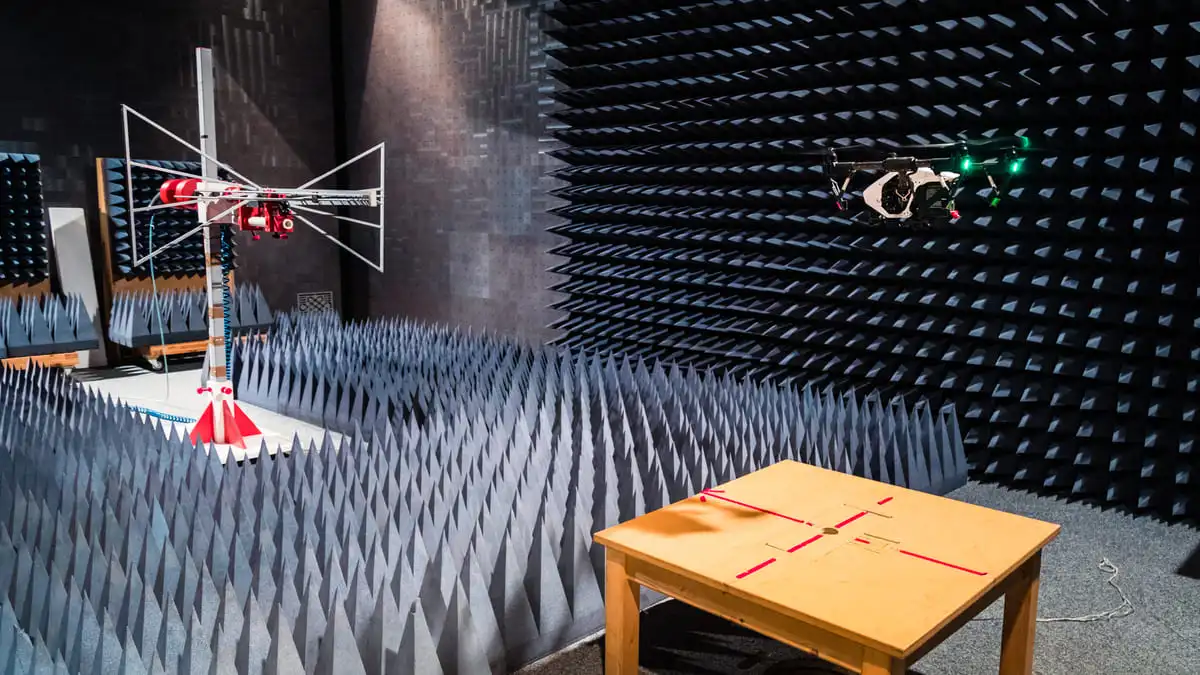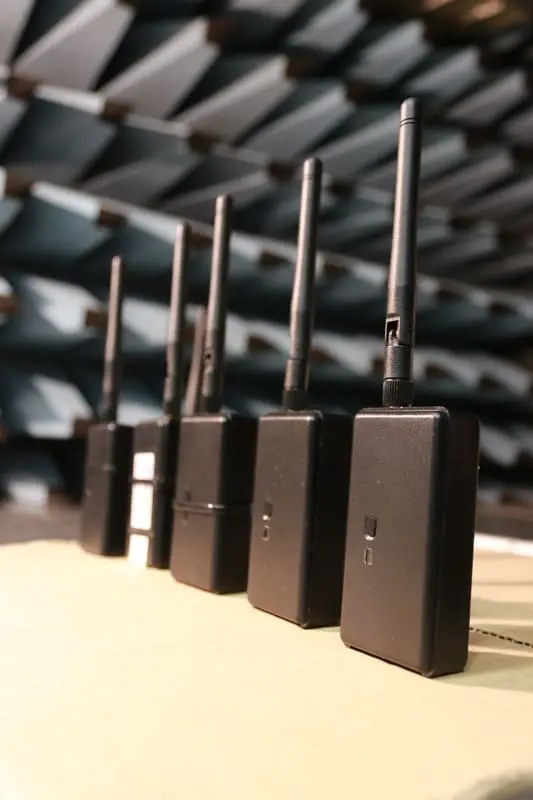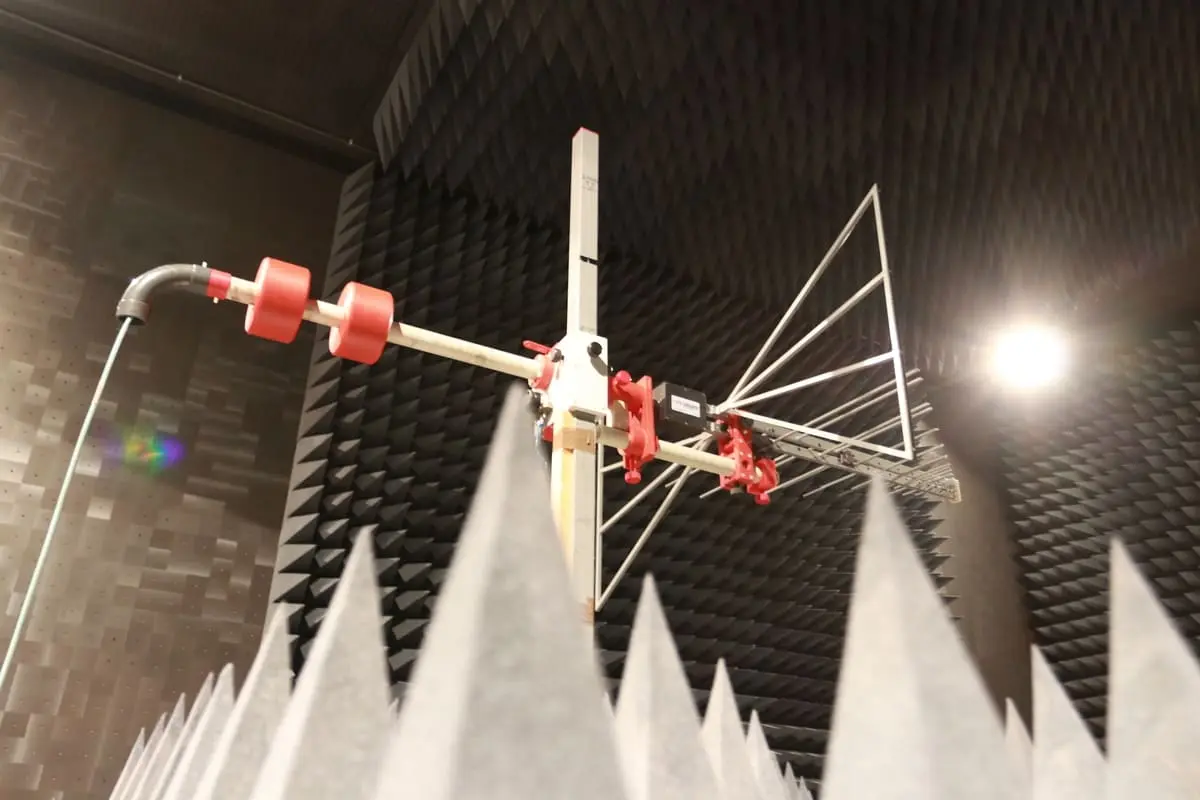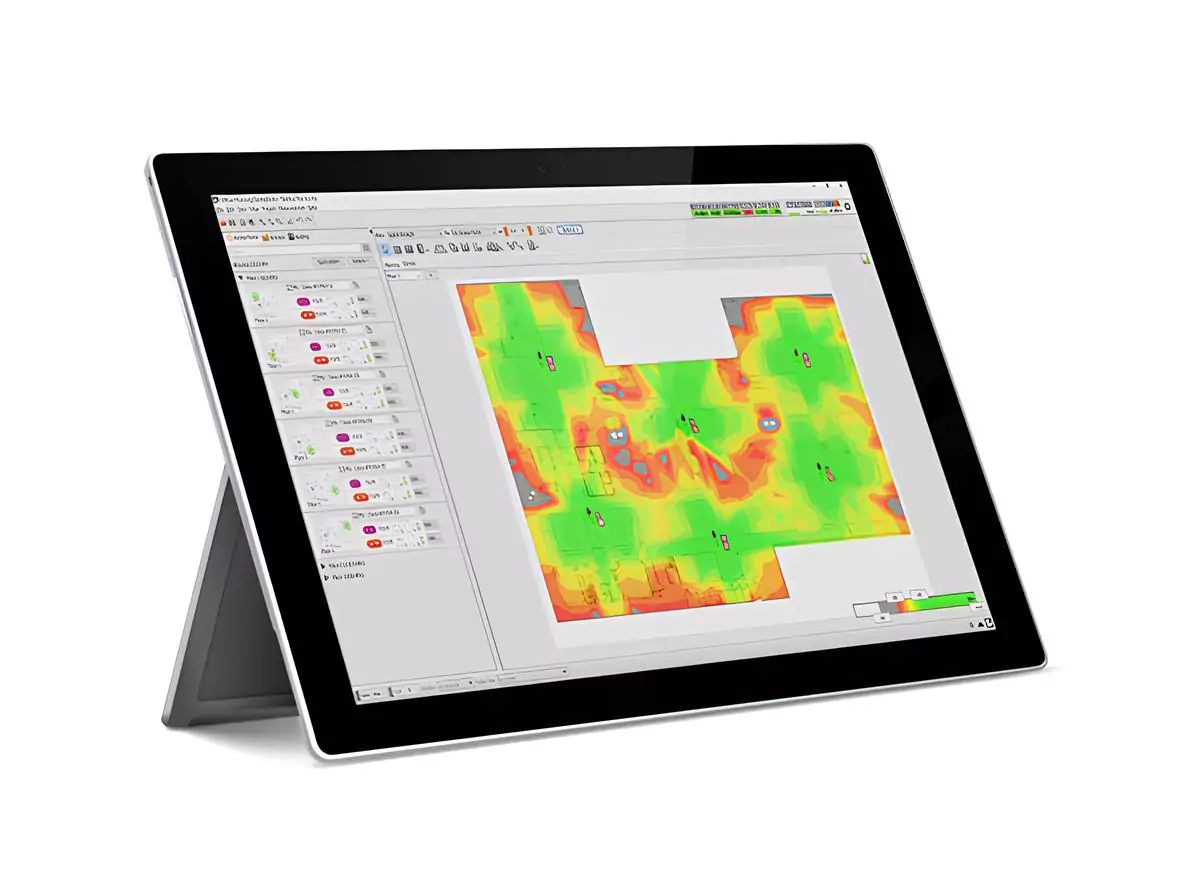independent – accredited – CE certification
Radio Frequency Testing Laboratory
The Radiofrequency Testing Laboratory is an independent test lab accredited by the National Accreditation Authority (NAH). Its main profile is to perform tests according to the Electromagnetic Compatibility (EMC) Directive and the Radio Equipment Directive (RED), specifically aiming to obtain the CE marking. In addition to compliance testing, the lab also conducts preliminary tests to support development, and it offers the possibility of on-site and custom-designed tests based on individual requirements. Since 2020, it has been accredited according to the MSZ EN ISO/IEC 17025:2018 standard, and through its extensive partner network, it can assist clients throughout the entire CE certification process.

EMC
EMC measurement
Electromagnetic Compatibility Measurement (EMC) is an essential step in the development of electronic devices. These tests ensure that devices do not cause electromagnetic interference to other devices and are not susceptible to external interference. EMC measurements test a number of parameters, including electromagnetic radiation and electromagnetic immunity. These measurements are essential before products can be placed on the market to meet stringent standards and regulations. EMC measurements help to ensure the reliability and compatibility of electronic devices in an increasingly digital environment.
RED
RED measurement
Radio Equipment Measurement (RED) is a fundamental process in the development and commercialisation of radio frequency equipment. These measurements ensure that devices comply with the regulations and standards that govern the radio frequency spectrum. RED measurements test the radio frequency energy emitted by devices and their immunity to external radio frequency interference. These tests are essential before devices can be licensed to ensure smooth operation and efficient use of the frequency spectrum.


antenna
Antenna testing
Antenna testing is the process of evaluating the performance and efficiency of an antenna. These tests help determine the radiation characteristics of the antenna, such as the radiation pattern and resonant frequency. They also check the antenna impedance and transmission losses. Antenna tests are important in the development and verification of wireless communication systems as they help to optimise antenna performance and ensure reliable data transmission. Correct Antenna Testing ensures that the antenna will perform properly in the intended applications and meet the required performance levels.
wireless communication
WiFi and mobile network design, measurement
The efficient operation of WiFi and mobile networks is based on careful planning, a key step in optimising wireless communication systems. This includes the optimal determination of access point placement, antenna routing and cell size to ensure adequate coverage and network capacity in the planned area. In addition, efficient use of the frequency spectrum and minimisation of interference are important considerations. Proper design can ensure that wireless networks are reliable and able to meet the needs of users for fast and stable Internet connectivity. Once designed, it is essential to measure and validate the networks in the field. Field surveys, spectrum analysis and signal level measurements help identify potential interference and performance problems. The data collected can be used to fine-tune the network.


CE marking
Advice on obtaining CE marking
The aim of obtaining CE marking advice is to help manufacturers demonstrate the conformity of their products sold in the European Union. During the consultancy, experts provide assistance with the conformity assessment procedure, the preparation of the necessary documentation and the fulfilment of the requirements. Obtaining CE marking ensures that the product complies with the rules and regulations of the EU single market. Expert advice helps to facilitate this process and ensure that the product meets the necessary standards and regulations.













